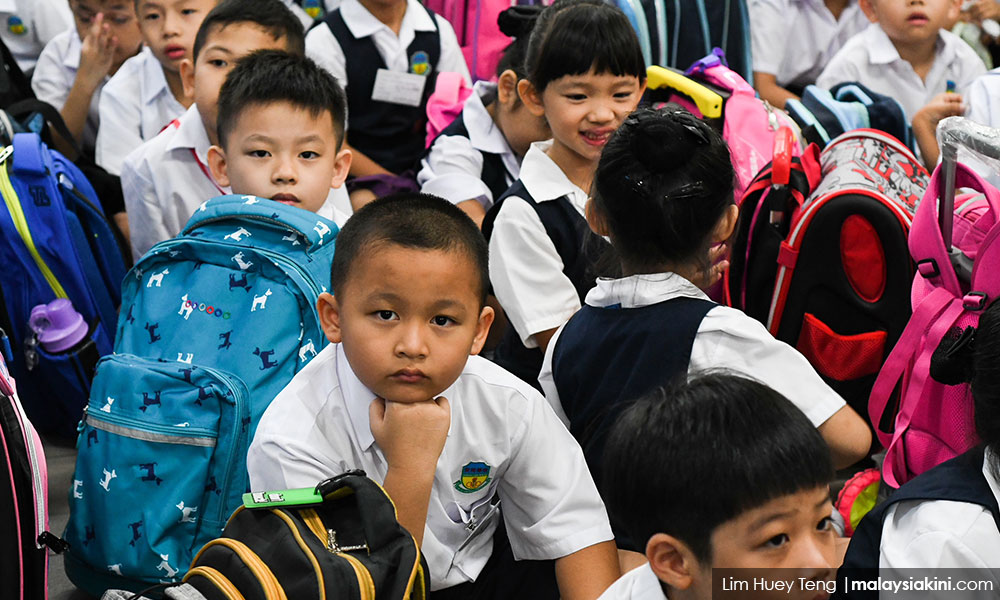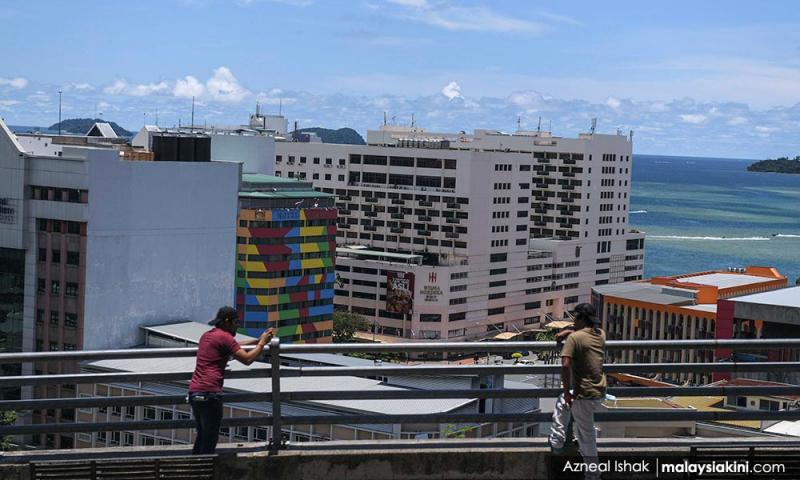LETTER | Education in Sabah: Decentralisation and other solutions
LETTER | Sabah, a land of diverse landscapes and cultures, grapples with persistent challenges that paint a stark picture of its educational landscape.
Imagine teachers and students from Kota Marudu, Sabah, embarking on a six-hour trek through muddy roads just to reach their school - a vivid testament to the glaring inadequacies in road access that have recently been reported in the media.
The struggle, however, extends beyond the physical terrain, touching upon crumbling school infrastructure and a disheartening trend of consistently lagging in national assessments.
In response to these pressing issues, the proposed remedy often surfaces as a call for administrative decentralisation, suggesting a transfer of control from the federal government to the state government.
Advocates assert that such a shift will be the panacea for Sabah's academic woes. However, this narrative, while enticing, risks oversimplifying the intricate web of challenges.
The danger lies in solely attributing the solution to structural changes without a nuanced, interdisciplinary examination of the broader issues at hand.

As we explore the potential path of decentralisation, it's imperative to wield an interdisciplinary lens, ensuring accountability aligns with a comprehensive understanding of the multifaceted educational landscape in Sabah.
Unlocking the full potential of education requires tackling critical issues beyond the traditional boundaries of the Education Ministry.
For example, the recently published Digital Education Policy (DEP) by the Education Ministry in December 2023 faces implementation challenges unless the sector addressing digital connectivity resolves this deficiency.
Picture this - students from the Tawau district had to travel for 30km just to get an adequate internet connection for their online learning during the pandemic.
Although schools nationwide have resumed face-to-face learning, the introduction of DEP further warrants secured and guaranteed access to digital connectivity for every area in Sabah so that digital education can be implemented efficiently whether inside or outside of the classroom.
Based on available data from the Communications Ministry, the third quarter of 2021 witnessed a rise in 4G coverage to 83.9 percent in Sabah's populated regions, marking an improvement from 73.41 percent recorded in the second quarter of the previous year, before the introduction of the National Digital Network (Jendela) initiative.
Although this shows efforts to increase internet penetration in Sabah, it is with hopes that these efforts will also reach the innermost rural areas in Sabah because the DEP is meant to be implemented in every education institution under the ministry so the stated strategies in the policy can be fully manifested on the ground.
Socioeconomic issues
It's well-known that household socioeconomic status influences students' academic performance. Therefore, the responsible sector or ministry for improving a population's socioeconomic situation needs to be identified.
Additionally, attention must be given to providing the necessary resources and amenities for growth, especially in the rural areas of Sabah.
Without these basic infrastructures to accelerate economic growth within a region, not many would invest in the area.
Recently, there was a plan by the Sabah government to achieve an 80 percent reduction in hardcore poverty rate within the state by the end of 2024. Therefore, hopefully, this initiative can indirectly aid in students' academic performance.
However, other sectors that indirectly provide household socioeconomic growth should also pay attention to how this impacts students’ academic achievement.
Although the above was explained in isolation, they are interrelated. If a ministry, sector or department lacks the initiative to address such problems, it will negatively impact those who should benefit, creating a ripple effect across different sectors, and ultimately affecting access to schooling, children's educational experiences and teachers' well-being.
Going back to decentralising education, international findings suggest that education decentralisation does not significantly impact academic performance.
Varying results
Among the countries where decentralisation is considered statistically significant - only Canada, Qatar and Turkiye exhibit a positive impact on student achievement.
In contrast, decentralisation in Austria, Lebanon and Trinidad & Tobago is associated with negative effects on student outcomes. Additionally, even in countries like Russia, Slovenia and Thailand, where decentralisation is statistically significant, it is found to have adverse implications for student achievement.
Despite the limitations of these studies, those studies indicated that the outcomes of decentralisation in education can vary significantly. In light of this, policy entrepreneurs and advocates of decentralisation must be cognisant, especially as partial education decentralisation is currently on Sabah's agenda.
The agenda to partially decentralise education is a positive development especially for Sabah as autonomy in this regard has been long overdue.
However, an interdisciplinary mindset and inter-ministerial effort to increase education quality is crucial considering their ripple effects on students’ learning and development.
A variant of the saying “it takes a village to raise a child” is ‘it takes inter-ministerial effort to ensure quality education for student learning and development.’
Writer is the coordinator of HIVE Educators, a Sabah-based independent education think-and-action tank.
The views expressed here are those of the author/contributor and do not necessarily represent the views of Malaysiakini.
RM12.50 / month
- Unlimited access to award-winning journalism
- Comment and share your opinions on all our articles
- Gift interesting stories to your friends
- Tax deductable
